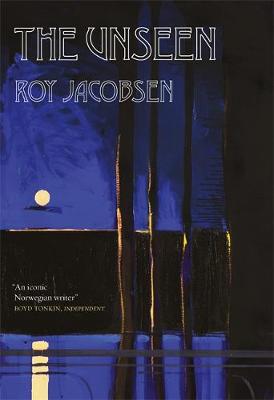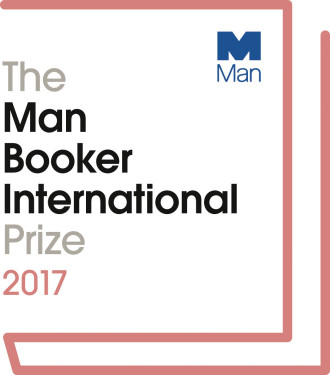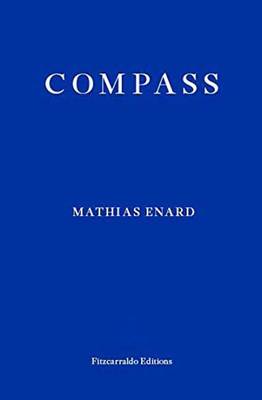This is the official group response of the shadow panel to the Man Booker International longlist.
The Shadow Panel for the 2017 Man Booker International Prize would like to extend its congratulations and thanks to the official judges for their hard work in whittling down the 126 entries to the thirteen titles making up the longlist. In some ways, it is a somewhat unexpected selection, with several surprising inclusions, albeit more in terms of the lack of fanfare the works have had than of their quality. However, it is another example of the depth of quality in fiction in translation, and it is heartening to see that there is such a wealth of wonderful books making it into our language which even devoted followers of world literature haven’t yet sampled. Of course, at this point we must also thank the fourteen translators who have made this all possible, and we will endeavour to highlight their work over the course of our journey.
In the second year of the prize’s new incarnation, there is a definite sense of quality being prioritised, with many of the titles promising heavy topics and quality writing (we note, with trepidation, that the longlist is also literally far heavier than its 2016 counterpart). This second year of the MBIP book prize is also the first of the post-Tonkin era, and it will be interesting to see what effects the departure of the longtime IFFP/MBIP Chair will have. Will the new age bring a different feel to the prize, ushering in a longlist notable more for the writing and less for emotional turmoil? Time will tell…
Turning to the actual books, we note a pleasing spread of languages (eleven) and countries (twelve), with five of the longlisted titles by writers hailing from outside Europe. There are some notable omissions, though, with no books translated from Arabic, Japanese, Portuguese or Russian (a language particularly poorly represented over the past few years). The list of writers shows a mix of old friends (Ismail Kadare, Jón Kalman Stefánsson, Yan Lianke, Alain Mabanckou) and newcomers to the prize (Wioletta Greg, Clemens Meyer, Roy Jacobsen), some of whom will no doubt become new favourites for many readers.
While the female authors longlisted (in particular Samanta Schweblin) should prove to be strong contenders, the fact that only three women made the cut is disappointing. However, we fully acknowledge that this is less a reflection on the judges than further evidence of the gender imbalance in what is published in translation in the UK (it would be enlightening, and perhaps useful, to learn how many of the 126 submissions were by women). On that point, it was interesting to note in the week leading up to this announcement the start of a new initiative, The Warwick Prize for Women in Translation. Hopefully, this will encourage the commissioning of more translations of works by female authors, which may then encourage more submissions for the MBIP in future years.
Another interesting feature of the list is the spread of titles published by independent presses and major publishing houses. Peirene Press’s six-year run may have come to an end, but that has more to do with the high standard of the competition than with weak entries. Other small presses to miss out include And Other Stories, Comma Press, and Istros Books (although we feel it is only a matter of time before they finally achieve a longlisting). Among the small presses who did manage to have titles selected, particular congratulations must go to both MacLehose Press and Fitzcarraldo Editions, with two nominations apiece rewarding their commitment to high-quality, challenging literature. We were particularly pleased by the recognition of Mathias Énard’s novel Compass; perhaps this decision will go some way to righting the wrong of the omission of his work Zone from the 2015 IFFP longlist (a decision we at the Shadow Panel saw fit to rectify…).
Zone was the first book ever called in by the Shadow Panel, and one of our main tasks after the longlist announcement this year was to decide whether this was required again. It is no secret that Samanta Schweblin’s Fever Dream would have been the automatic pick, but thankfully the official panel has made that decision for us. Works that were perhaps unlucky not to be chosen include Eka Kurniawan’s Beauty is a Wound, Marie Sizun’s Her Father’s Daughter and Sjón’s Moonstone, yet the only other title we seriously considered calling in was László Krasznahorkai’s War and War. However, a combination of his previous success in both the MBIP and the American Best Translated Book Award and doubts as to whether the novel was eligible (or even submitted) have led us to decide not to do so.
Therefore, we set off on our journey at the same point as the real judges, ready to explore the thirteen titles selected for the official longlist. However, this is where our paths will (and should) diverge. Over the coming months, our eight shadow judges will do their best to examine these books and explain why they were selected (or question those decisions). We give the longlist a cautious nod of approval; the shortlist, of course, is another matter entirely.
Like this:
Like Loading...




Recent Comments